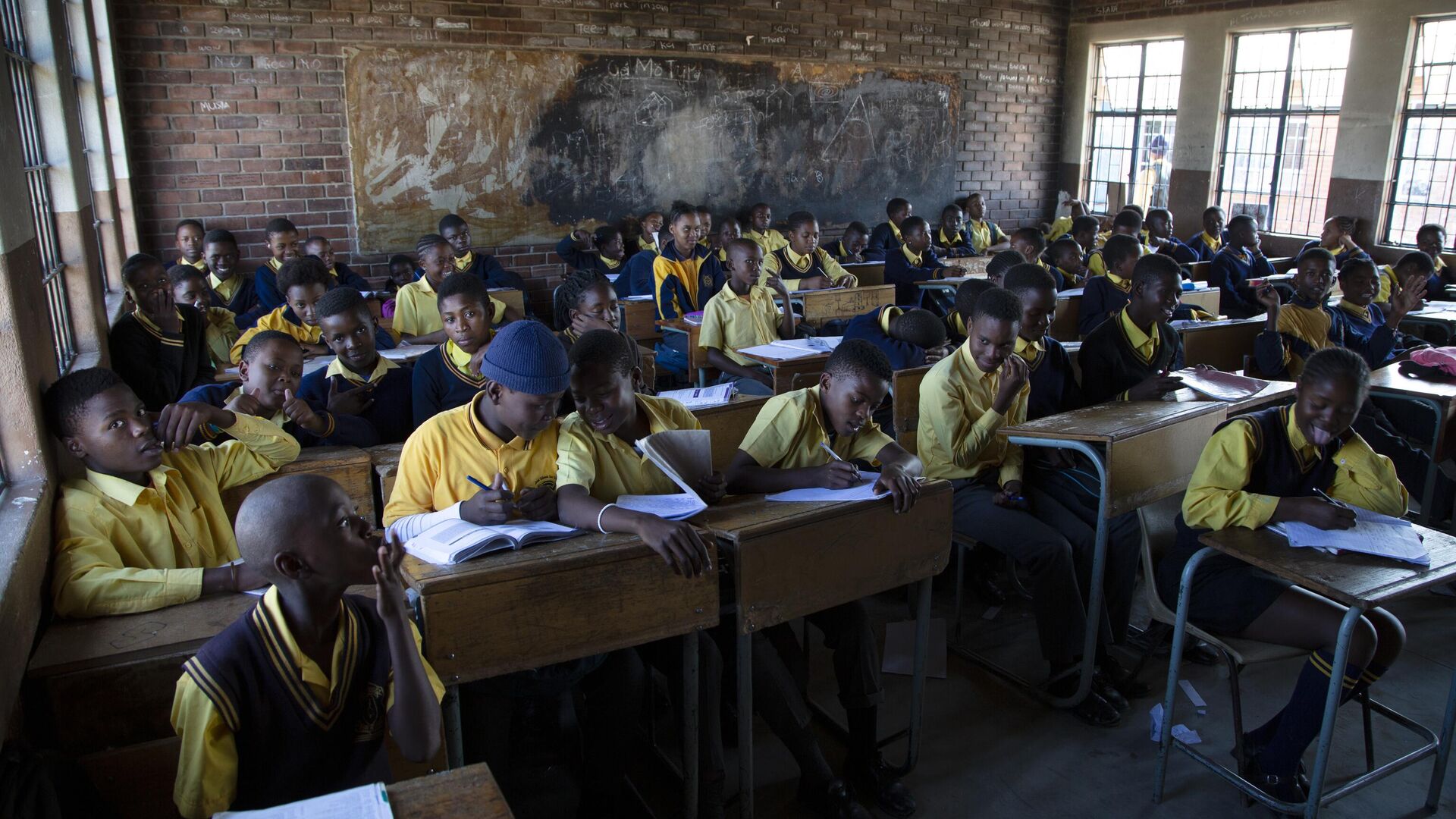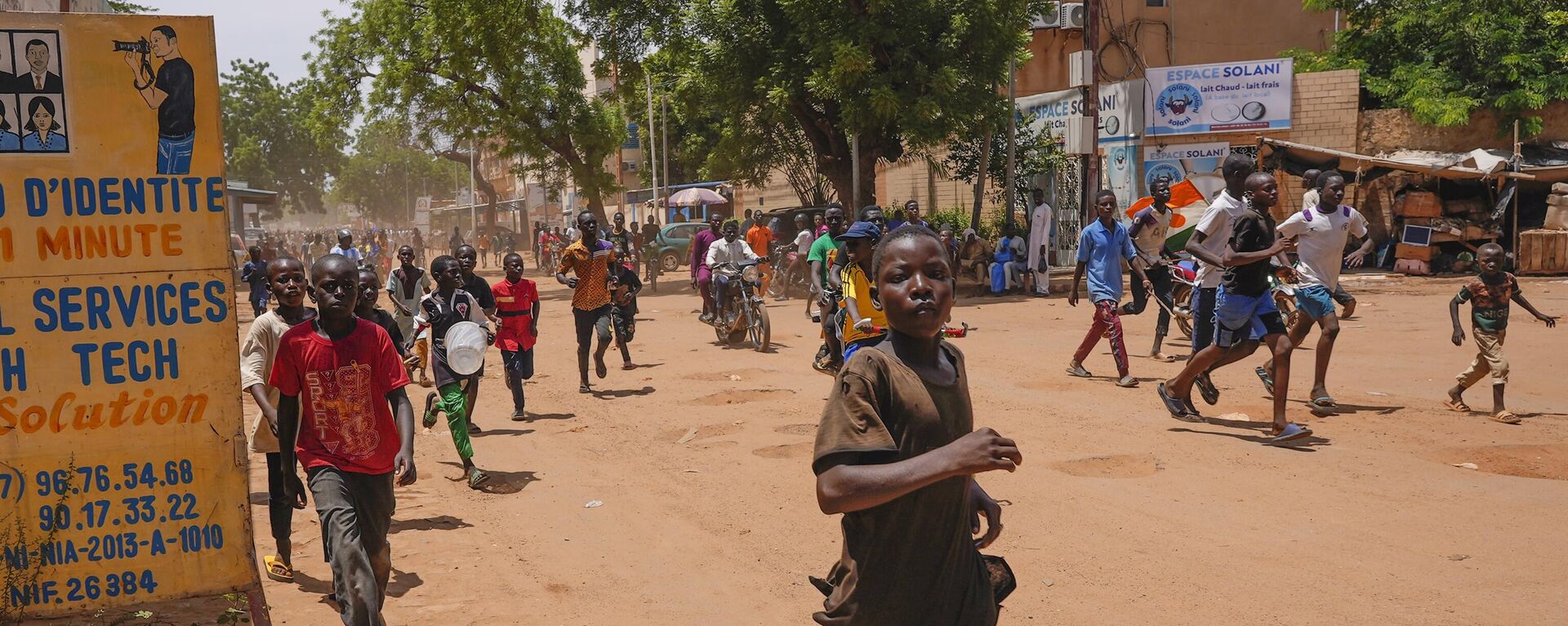https://en.sputniknews.africa/20240618/russia-to-expand-its-humanitarian-mission-in-africa-to-help-children-ombudswoman-says-1067093316.html
Russia to Expand Its Humanitarian Mission in Africa to Help Children, Ombudswoman Says
Russia to Expand Its Humanitarian Mission in Africa to Help Children, Ombudswoman Says
Sputnik Africa
Sub-Saharan Africa has the greatest number of children who are not attending school and is the only region where this number is increasing, according to the... 18.06.2024, Sputnik Africa
2024-06-18T11:43+0200
2024-06-18T11:43+0200
2024-06-18T11:59+0200
russia
kenya
uganda
russian foreign ministry
sergey lavrov
sub-saharan africa
burundi
sub-saharan africa
united nations (un)
tanzania
https://cdn1.img.sputniknews.africa/img/07e8/06/12/1067094579_0:160:3072:1888_1920x0_80_0_0_b7c86fac4c7372ff37766b49656c2729.jpg
Russia will expand its humanitarian mission in African countries to provide support to children living there, Maria Lvova-Belova, Commissioner for Children's Rights under the President of Russia, wrote in her Telegram channel on Tuesday following a meeting with Foreign Minister Sergey Lavrov.In addition, the issue of assistance to Karabakh families who resettled in Armenia was raised at the meeting. Lvova-Belova said that Russia is planning to help 90 children rest and recover.The country is also considering the possibility of exchanging experience with China including with the involvement of the Federal Children's Public Council, an advisory body under the Commissioner, created to involve children in decision-making and discussion of issues affecting their interests.Education accessibility in sub-Saharan Africa remains a challenge. Although the rates of children not attending school who are of primary school age have been steadily decreasing, the decline has been very small, at a rate of just 0.3% per year during the 2010s, the UN noted. As a consequence, one out of every five children was not enrolled in school as of 2021.However, the primary obstacle lies with adolescents and youth, whose percentages of not attending school have been unchanged since 2010, at 33% and 48%, respectively.As Francis-Xavier Sosu, a Ghanaian lawyer and President for Youth for Human Rights Africa, noted in his UN article, education is essential for children on the continent to escape poverty and realize their rights. Education also empowers children to transform their social, cultural, and economic status and secure future careers, thereby enabling full participation in society.However, the recent II International Forum of Ministers of Education "Shaping the Future" that was held in Russia's city of Kazan showed Africa's desire to improve their education systems. During the event, countries such as Benin, Djibouti, the Republic of the Congo, Sierra Leone, Ghana, Gambia, Chad, and others discussed possible ways of cooperating with Russia in the educational field, and some of them even inked agreements.
https://en.sputniknews.africa/20240616/child-focused-institutions--strengthening-policies-experts-on-how-to-help-african-kids-1067068851.html
russia
kenya
uganda
burundi
sub-saharan africa
tanzania
central africa
central african republic
democratic republic of the congo (drc)
east africa
Sputnik Africa
feedback@sputniknews.com
+74956456601
MIA „Rossiya Segodnya“
2024
Christina Glazkova
https://cdn1.img.sputniknews.africa/img/07e7/0b/07/1063380906_0:0:673:674_100x100_80_0_0_79628b4d0cd9f29291a57aa13bbf9e7a.jpg
Christina Glazkova
https://cdn1.img.sputniknews.africa/img/07e7/0b/07/1063380906_0:0:673:674_100x100_80_0_0_79628b4d0cd9f29291a57aa13bbf9e7a.jpg
News
en_EN
Sputnik Africa
feedback@sputniknews.com
+74956456601
MIA „Rossiya Segodnya“
Sputnik Africa
feedback@sputniknews.com
+74956456601
MIA „Rossiya Segodnya“
Christina Glazkova
https://cdn1.img.sputniknews.africa/img/07e7/0b/07/1063380906_0:0:673:674_100x100_80_0_0_79628b4d0cd9f29291a57aa13bbf9e7a.jpg
russia, kenya, uganda, russian foreign ministry, sergey lavrov, burundi, sub-saharan africa, united nations (un), tanzania, central africa, central african republic, democratic republic of the congo (drc), east africa, education, school, human rights, humanitarian aid , russia-africa cooperation, international
russia, kenya, uganda, russian foreign ministry, sergey lavrov, burundi, sub-saharan africa, united nations (un), tanzania, central africa, central african republic, democratic republic of the congo (drc), east africa, education, school, human rights, humanitarian aid , russia-africa cooperation, international
Russia to Expand Its Humanitarian Mission in Africa to Help Children, Ombudswoman Says
11:43 18.06.2024 (Updated: 11:59 18.06.2024) Christina Glazkova
Writer / Editor
Sub-Saharan Africa has the greatest number of children who are not attending school and is the only region where this number is increasing, according to the UN. From 2009 to 2021, the number of children not attending school has risen by 20 million, reaching a total of 98 million.
Russia will expand its humanitarian mission in African countries to provide support to children living there, Maria Lvova-Belova, Commissioner for Children's Rights under the President of Russia,
wrote in her Telegram channel on Tuesday following a meeting with Foreign Minister Sergey Lavrov.
“We will expand the humanitarian mission in African countries. This year, we have planned projects in Burundi, Kenya, Tanzania, Uganda, the Central African Republic, and the Democratic Republic of the Congo. [The plans include] an orphanage for girls on Mount Elgon [located on the Uganda-Kenya border], a kindergarten, and a secondary school,” the ombudswoman wrote.
In addition, the issue of assistance to
Karabakh families who resettled in Armenia was raised at the meeting. Lvova-Belova said that Russia is planning to help 90 children rest and recover.
The country is also considering the possibility of exchanging experience with
China including with the involvement of the Federal Children's Public Council, an advisory body under the Commissioner, created to involve children in decision-making and discussion of issues affecting their interests.
“Thanks to Sergey Viktorovich [Lavrov] and the entire team of the Russian Foreign Ministry for their attention to the children’s topic and partnership,” summed up Lvova-Belova.
Education accessibility in sub-Saharan Africa remains a challenge. Although the rates of children not attending school who are of primary school age have been steadily decreasing, the decline has been very small, at a rate of just 0.3% per year during the 2010s, the UN
noted. As a consequence, one out of every five children was not enrolled in school as of 2021.
However, the primary obstacle lies with adolescents and youth, whose percentages of not attending school have been unchanged since 2010, at 33% and 48%, respectively.
As Francis-Xavier Sosu, a Ghanaian lawyer and President for Youth for Human Rights Africa, noted in his
UN article, education is essential for children on the continent to escape poverty and realize their rights. Education also empowers children to transform their social, cultural, and economic status and secure future careers, thereby enabling full participation in society.
However, the recent II International Forum of Ministers of Education "Shaping the Future" that was held in Russia's city of Kazan showed Africa's desire to improve their education systems. During the event, countries such as Benin,
Djibouti, the Republic of the Congo, Sierra Leone, Ghana,
Gambia, Chad, and others discussed possible ways of cooperating with
Russia in the educational field, and some of them even inked agreements.



